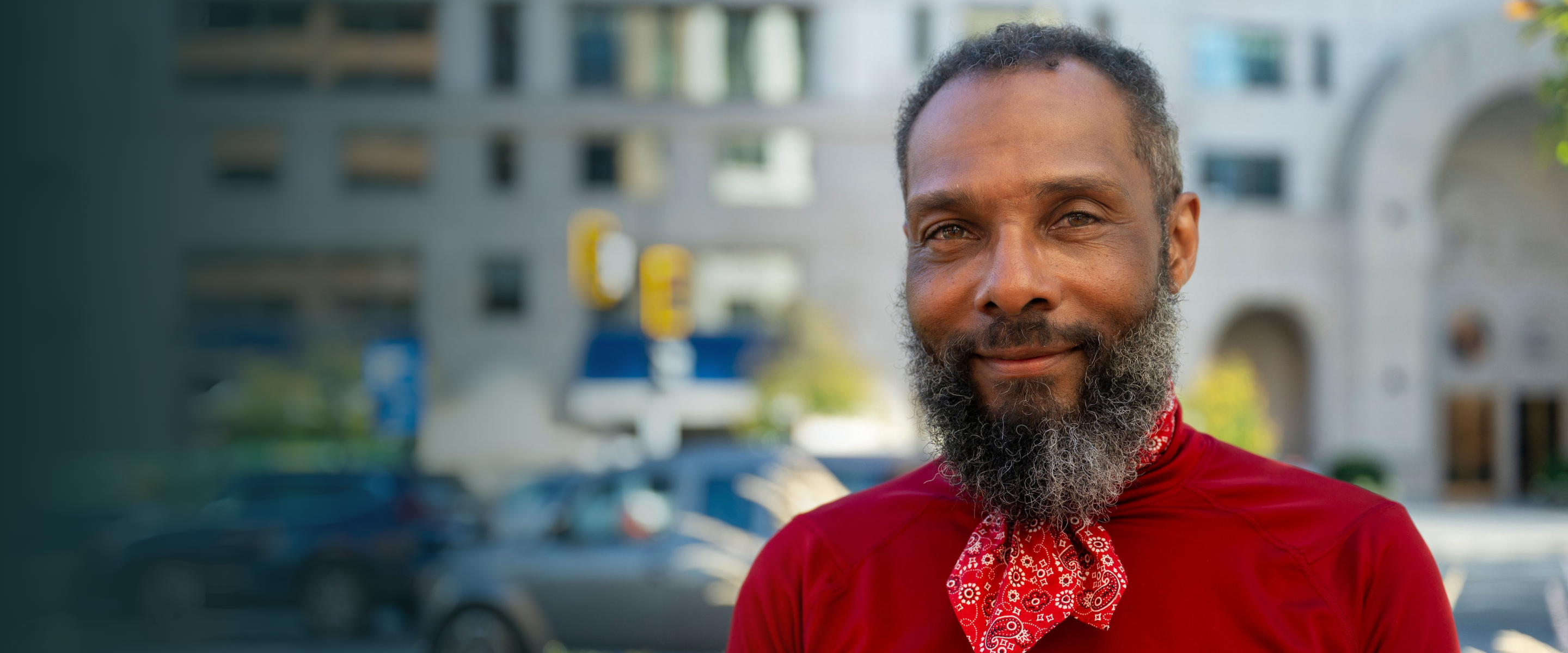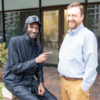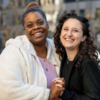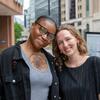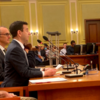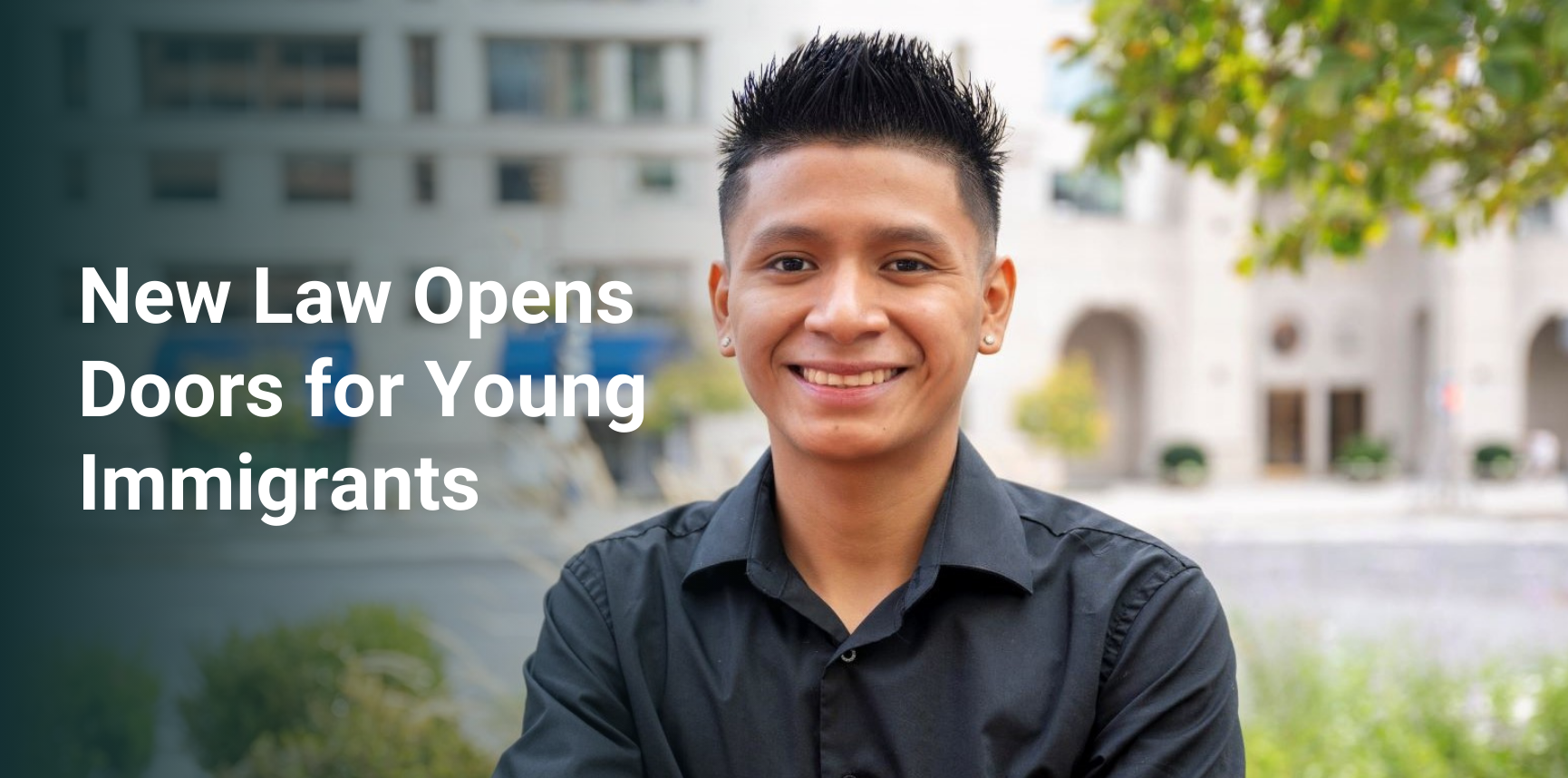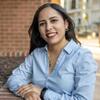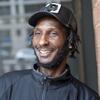In 2019, Pablo Cardenas* made a dangerous trip from Guatemala to the United States. He was just 16 years old and was traveling on his own. He was held in a detention center in Texas for over a month until, as an unaccompanied minor, he was released to DC into the care of his sister Sara*, the oldest of his eight siblings.
He began to settle into his new home, spent time with his two young nieces, and started classes at Roosevelt STAY high school. But the adjustment wasn’t easy.
“The truth is it’s been very different. It’s like starting from zero,” he said of life in DC. “My family is from a rural area, and I wasn’t used to the city. I hadn’t used a lot of technology. It felt like starting over. I had to learn a lot.”
Over the first few years, he settled in. His English improved. He graduated from high school, reaching a major goal that seemed out of reach back in Guatemala, where members of a gang hovered along his route to school.
Pablo started thinking more about his future, including his immigration status. But by then he was 20 years old, and he didn’t know if he would have many options. A teacher recommended that Pablo come to Legal Aid DC, where he met with Senior Staff Attorney Wendy Cheng.
“That’s when I started to take the first steps with Wendy, and we started working on getting legal status,” Pablo said. “I didn’t think legal status was possible because I was over 18. But then Wendy told me about the new law in DC."
That new law was about to open doors to legal status for Pablo and many others in a similar situation.
Creating Opportunity Through Advocacy
When Pablo first met Wendy in July of 2023, a bill called the Vulnerable Youth Guardianship Protection Act was moving toward becoming law in DC. Legal Aid and Kids in Need of Defense (KIND) had brought the need for such a bill to the attention of the DC Council and spent months advocating for its passage and working with Councilmembers to see it through.
"When Pablo came to us, we let him know the bill was going into effect and that he would be able to benefit from it very soon,” Wendy said.
Pablo was a strong candidate for a legal designation called Special Immigrant Juvenile Status, or SIJS. Youth up to age 21 can qualify for SIJS if they have been neglected, abandoned, or abused by a parent and it’s not in their best interest to return to their home country. Before applying for SIJS, a young person has to clear an initial hurdle in family court: a family court judge has to find that a young person meets certain criteria and appoint them a legal guardian in the U.S., usually a family member. But because local law only allowed children below the age of 18 to utilize this process in court, this step was out of reach for Pablo.
“In immigration law, a child is anyone who is under 21 and unmarried. But under DC family law, a child is someone under 18, and so there was no way for Pablo to get the family court order he needed to apply for SIJS. He was part of this group frustratingly caught in the middle,” explained Immigration Supervising Attorney Deepa Bijpuria. “A lot of other jurisdictions had already addressed this issue, and we worked with the DC Council to make sure the same happened here.”
Legal Aid, KIND, and others pushed for the Vulnerable Youth Guardianship Protection Act, which closed this gap and allowed the local courts to hear cases by those 21 and under, and it paved the way for Pablo to seek legal status. A few months after Pablo and Wendy’s first meeting, an emergency version of the legislation went into effect. Pablo became its pioneer.
“We were able to file the petition for him, and it was actually the very first petition of its kind filed in DC: docket number 000001,” Wendy said.
Wendy had prepared Pablo and his sister Sara for the case, and they agreed that Sara – who had cared for Pablo since his arrival in the U.S. – would become his legal guardian.
The case went before a family court judge in December 2023, and Pablo and Sara both spoke and answered questions. The judge approved the petition and gave Pablo and Wendy what they needed from family court to move forward with SIJS.
“Thankfully they approved me, they gave guardianship to my sister, and Wendy applied for me to get legal status,” Pablo said.
It was not just a victory for Pablo and his family, but it also helped break the ice for those who would follow after him under the new law.
Working Toward Legal Status
After the success in family court, Wendy submitted Pablo’s SIJS application. But in March, they received a letter that U.S. Citizenship and Immigration Services intended to deny him SIJS.
“Federal immigration hadn’t yet caught up to the change in policy in DC,” Wendy said. “But we were fully prepared to appeal if the family court judge or immigration denied us, because the first case is hard.”
In response, Deepa submitted a brief explaining what the new DC law meant for Pablo’s application. It took several more months, but in October 2024, Pablo was notified that he had been approved for SIJS.
“I had been doubtful, but Wendy did a great job and thankfully they approved me,” he said.
Wendy then helped Pablo apply for a work permit, and he plans to seek permanent residency in the future. He hopes to continue his education through a certificate program, and perhaps college. Reaching these goals is more important than ever since he and his partner – a childhood friend he reconnected with at Roosevelt – became parents in 2023.
“In Guatemala, I had to work from a young age, and we didn’t have a lot of opportunities to go to school,” he said. “I want to have a good future and help my family get ahead.”
*Pseudonyms have been used in this story to protect the privacy of the client and his family

